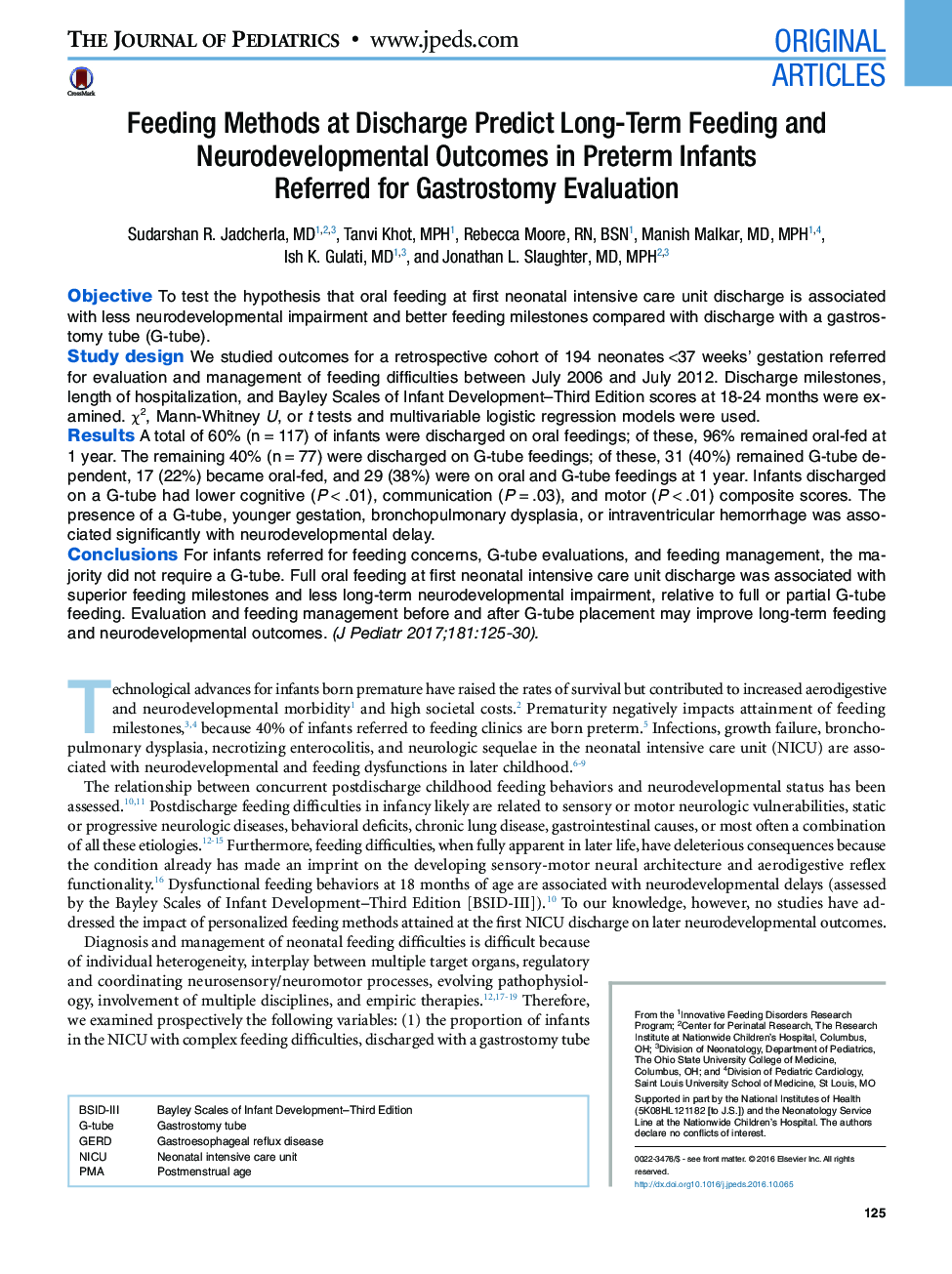| Article ID | Journal | Published Year | Pages | File Type |
|---|---|---|---|---|
| 5719199 | The Journal of Pediatrics | 2017 | 7 Pages |
ObjectiveTo test the hypothesis that oral feeding at first neonatal intensive care unit discharge is associated with less neurodevelopmental impairment and better feeding milestones compared with discharge with a gastrostomy tube (G-tube).Study designWe studied outcomes for a retrospective cohort of 194 neonatesâ<37 weeks' gestation referred for evaluation and management of feeding difficulties between July 2006 and July 2012. Discharge milestones, length of hospitalization, and Bayley Scales of Infant Development-Third Edition scores at 18-24 months were examined. Ï2, Mann-Whitney U, or t tests and multivariable logistic regression models were used.ResultsA total of 60% (nâ=â117) of infants were discharged on oral feedings; of these, 96% remained oral-fed at 1 year. The remaining 40% (nâ=â77) were discharged on G-tube feedings; of these, 31 (40%) remained G-tube dependent, 17 (22%) became oral-fed, and 29 (38%) were on oral and G-tube feedings at 1 year. Infants discharged on a G-tube had lower cognitive (Pâ<.01), communication (Pâ=â.03), and motor (Pâ<.01) composite scores. The presence of a G-tube, younger gestation, bronchopulmonary dysplasia, or intraventricular hemorrhage was associated significantly with neurodevelopmental delay.ConclusionsFor infants referred for feeding concerns, G-tube evaluations, and feeding management, the majority did not require a G-tube. Full oral feeding at first neonatal intensive care unit discharge was associated with superior feeding milestones and less long-term neurodevelopmental impairment, relative to full or partial G-tube feeding. Evaluation and feeding management before and after G-tube placement may improve long-term feeding and neurodevelopmental outcomes.
